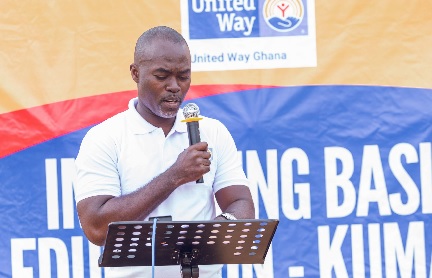
NGO seeks to bridge gap in basic schools
The United Way Ghana, a not for profit organisation, has launched its Improving Basic Education (IBE) programme to help bridge the gap that exists in several basic schools in the country.
Advertisement
It aims to ensure that every child has access to quality education and the appropriate books to enhance literacy in basic schools.
The programme incorporates sustainable development goals (SDG) four, eight and 17 which seek to improve access to and delivery of quality basic education in underserved communities, provide productive employment and decent work for all through mutually beneficial partnerships.
The project is in collaboration with the Ghana Library Authority, Ghana Education Service, Engage Now Africa and other partners.
The IBE programme is funded by the Larry MacDonald Family Foundation over a period of three years and is expected to be implemented in Parkoso and Ejisu.
The Executive Director of United Way Ghana, Felix Kissiedu-Addi, explained that by 2025, the programme was expected to improve over 500 young learners’ ability to read and comprehend age appropriate books and improve their general educational performance by over 60 per cent.
He said projects under the programme included basic literacy, practical science, technology, engineering and mathematics (STEM) education, mentorship, teachers capacity enhancement and economic empowerment for parents.
Mr Kissiedu-Addi noted that the programme would create opportunities for communities to attain self-resilience by empowering learners to improve their academic performance, develop their leadership and soft skills, and equip parents with the required skills and tools to set up viable businesses.
Assessment
Mr Kissiedu-Addi explained that prior to the launch, the organisation conducted a pre-assessment test to identify the literacy levels of 345 primary pupils in Parkoso RC Basic School.
The Deputy Director of Education at the Ghana Education Service in the Asokore Mampong Municipality, Edward Bransah, said education could not thrive in a country where the well-being of the child was not first sought.




